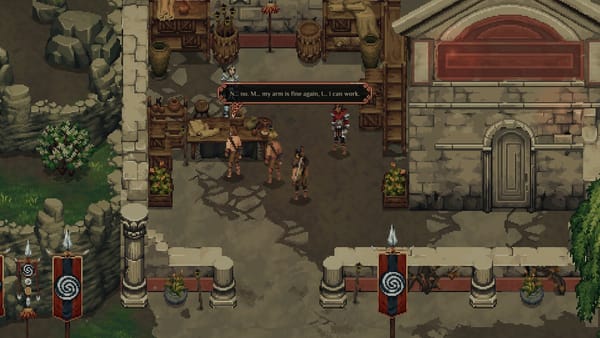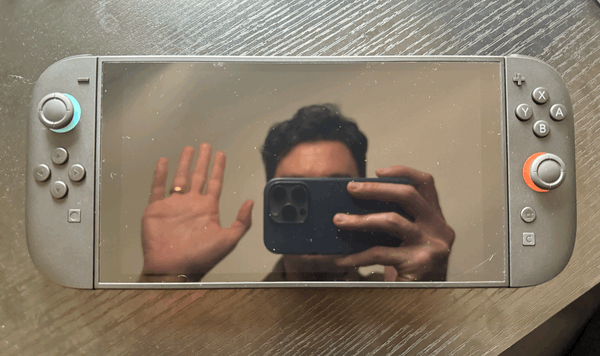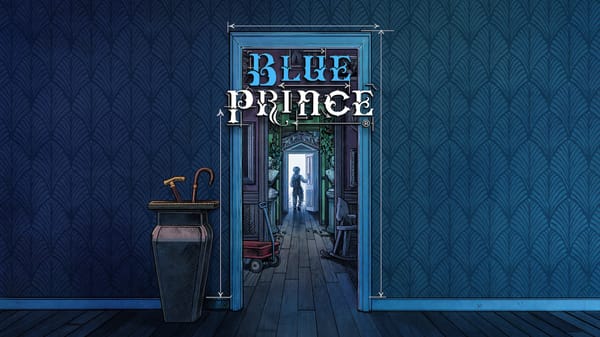What’s a knife fight between foils? On Squid Game and The Last of Us Part II
Don’t fight! Don’t fight!!
[Full spoilers for Squid Game and The Last of Us Part II follow. You have been warned. Also, this probably won’t make much sense if you haven’t experienced both? Sorry. That’s just how it panned out this week, writing-wise.]
Both Squid Game and The Last of Us Part II culminate in a damp knife fight. It’s one of those dumb connections you think of in the shower, or in this case, while brushing your teeth. Ideas you have while brushing your teeth are not, of course, universally brilliant, but I think the two share more than this incidental connection. In retracing my reaction to the finale of Squid Game, hoping against hope that Gi-hun would choose happiness over revenge, I also found myself reliving that same emotional arc during Ellie’s late-game Wyoming domesticity. In both instances, I sat pleading with the writers to let someone, anyone, be at peace.
[No, but for real: full spoilers for Squid Game and The Last of Us Part II follow. If you have any intention of engaging with either without foreknowledge of their conclusions, now is the time to go have a nice cup of coffee or pet a dog or something.]
Squid Game ends with Gi-hun choosing revenge. Or maybe justice. The water is murky. Regardless, he was moments away from stepping on a plane, a metaphorical object so widely beloved that it’s a wonder Gi-hun didn’t walk away from a giant gate that read “Happy Ending.” More seriously, for Gi-hun, the plane represented another chance at being a father. If not a good one, then at least a present one.1 From episode one, we know that at the heart of Gi-hun is a sincere love for his daughter. As the season concludes, against all odds, he has won the Squid Game and come out alive, and, more importantly, rich. He has an actual second chance, a non-fantastical ability to start anew. He has won the pot of gold at the end of the murder rainbow. And what does he do with it? What he did in the first episode when faced with good fortune: he doubles down. Tragic, no matter how expected.
To be clear, Gi-hun is no moral exemplar. The pathos he stirs up is not that of a saint. Regardless of who Il-nam ended up being, the fact remains that Gi-hun was more than willing to take advantage of an ailing elder in order to survive and win, which is not really a splotch one wants on the ol’ soul. Still, one feels for him, having “won” by way of a knife fight in the rain with a childhood friend. Yes, his combatant Sang-woo is the morally compromised foil to Gi-hun, and, yes, Sang-woo is personally responsible for two of the most heartbreaking character deaths in the series. Like the audience, Gi-hun is no fan of the man at this point and likely wants him dead, but he still tries to call the whole thing off. He wants the game to end more than he wants to win it. He knows that too much has been lost for anything to be won.
It’s a wonder the resonances with TLOU2 didn’t occur to me in that moment. It, too, culminates in two foils fighting to the death, only this time in about a foot of water. At the beginning of the climactic knife fight of TLOU2, like Gi-hun, Abby refuses to engage with Ellie’s provocations. Also like Gi-hun, we know that Abby isn’t so much virtuous in this moment as she is broken, tired, and unwilling to continue. The only reason the two do fight is because Ellie exploits Abby’s familial care for Lev, threatening to kill him if Abby doesn’t face her. The resultant fight is brutal, made all the more agonizing by the fact that the player has spent more than ten hours playing as each character and knows neither to be completely villainous nor completely heroic. Both have enacted unspeakable cruelty on each other. Both are compromised and traumatized. If you were like me, all you wanted was for both to leave. To live. For a moment, it seems as though the game will not deliver this. Ellie is resolute in her desire for revenge. Abby killed Joel, Ellie’s stand-in father. She has to die. She has to be punished. As Ellie held Abby underwater, I felt all but certain that she would die. But it’s Joel that interrupts the violence. A memory of him flashes across the screen. Nothing special. Just him sitting on the porch. Guitar in hand. Greeting Ellie. Bringing her back to herself. Bringing you back to yourself. Ellie releases her grip on Abby. She comes up gasping for air before escaping with Lev. Ellie is left with herself, wounded, bloody, and bereft.
Before any of this, however, Ellie was momentarily happy. She and her partner Dina had built a life together at a quiet farmhouse, raising their son JJ. In a world populated by fungal zombies and warring factions of survivors, this stand-in for domestic bliss felt genuinely rare. The game takes time to mark how hard-fought it is, too. Ellie has traumatic flashbacks that affect her ability to parent. She feels guilt about this, and while Dina is patient with her, one can tell that the two are working hard to figure things out, approaching their life together as it is rather than how they wish it were. They feel real as a couple, and for the entirety of this portion of the game, I wanted desperately for it to be the end. But of course it couldn’t be. Joel’s brother Tommy shows up and goads Ellie into finishing what she failed to do before: killing Abby and avenging Joel. Dina tells Tommy to leave, and he does. She proceeds to make clear the stakes to Ellie. It’s no surprise, then, that when Ellie chooses to seek out her revenge, she does it alone. Dina and JJ are never seen again. The house in Wyoming, and everything it represents, is left behind.
I worry that Gi-hun will suffer the same fate. It seems unavoidable. When we say things consume us, we mean it literally. Season 2 of Squid Game could very well give us an entirely different setting, perhaps a different cast of characters. It is suggested that there are more of these games throughout the world, which gives the series the potential to go broader and more abstract. But I suspect it won’t. I suspect, like Ellie, Gi-hun will be left with nothing. The initial tragedy of Gi-hun—that he wins big but can’t stop himself from going too far—will likely be the final tragedy, too. Like Ellie, he is monomaniacal. Like Abby, he tried to abandon the violence of the game only to find himself drawn back in. Like Sang-woo, he will eventually find himself out of options. Having turned his back on change, he has cemented himself in the inevitable. I’d love to be wrong, but like TLOU2, Squid Game doesn’t pull its punches.
The mere possibility of a happy ending in Squid Game also seems to suggest that being a good father is easier when one is monied, that some of what we associate with “goodness” is in fact derived from suppositions that wealth equates with care, but that’s a discussion for another day. ↩




